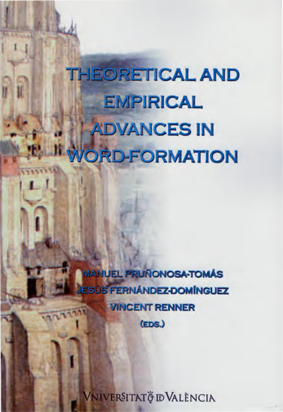Introduction
DOI:
https://doi.org/10.7203/qfilologia.18.3253Keywords:
morphology, lexicology, word-formation Abstract
Abstract
Word-formation is the branch of linguistics that studies the nature and circumstances surrounding the coining of new complex lexemes. This field of research has been a source of fascination to scholars for centuries – descriptions regarding the mechanisms of lexical innovation of Classical Sanskrit existed already in the 4th century BCE. A number of controversial issues have traditionally underlain the discipline and, despite the efforts directed at solving them, many remain a matter of debate to the present day. As happened in other areas of linguistics, the 20th century witnessed a revolution in word-formation, thanks to Saussure’s writings and to monographs like Chomsky (1957), Dokulil (1962) and Marchand (1969). If one had to name a distinctive attribute of modern word-formation, it would probably be the non-predominance of a single linguistic theory.
This volume was conceived as a reflection of the current trends in word-formation, and has therefore tried to embrace a variety of theoretical frameworks, viewpoints and languages.
 Downloads
Downloads
Downloads
Published
How to Cite
-
Abstract291
-
PDF102
-
PDF (Español)242
-
PDF (Català)73
Issue
Section
License
 Este obra está bajo una licencia de Creative Commons Reconocimiento-NoComercial-SinObraDerivada 4.0 Internacional.
Este obra está bajo una licencia de Creative Commons Reconocimiento-NoComercial-SinObraDerivada 4.0 Internacional.
Authors who publish with this journal agree to the following terms:
- Authors retain copyright and grant the journal right of first publication with the work simultaneously licensed under a Creative Commons Attribution License that allows others to share the work with an acknowledgement of the work's authorship and initial publication in this journal.
- Authors are able to enter into separate, additional contractual arrangements for the non-exclusive distribution of the journal's published version of the work (e.g., post it to an institutional repository or publish it in a book), with an acknowledgement of its initial publication in this journal.
- Authors are permitted and encouraged to post their work online (e.g., in institutional repositories or on their website) prior to and during the submission process, as it can lead to productive exchanges, as well as earlier and greater citation of published work (See The Effect of Open Access).



